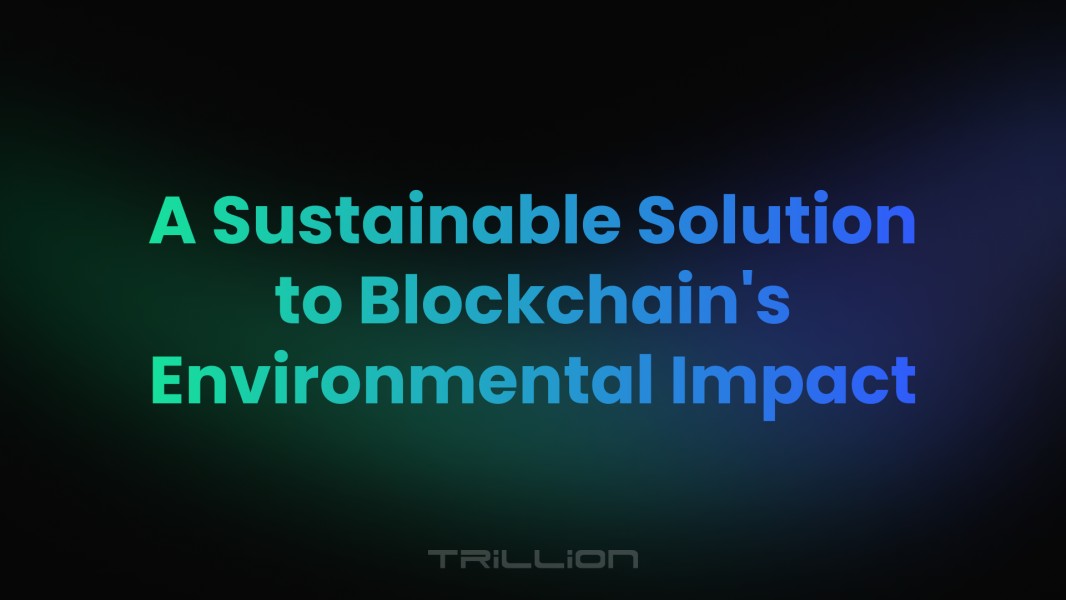
The Trillion Platform continues to actively concentrate on exploring sustainable development and incorporating emerging technologies, in alignment with its mission. Throughout ongoing research, our main focus lies in investigating how digital solutions can play a role in building a world that is more environmentally sustainable.
The Trillion Platform, as a developer and ambassador of blockchain for sustainable development, continues to explore the benefits of applying modern technologies in shaping a sustainable future. Today, let's delve into the topic of "Why Green Blockchains Matter."
Were you aware that the production of Bitcoin alone is estimated to produce over 22 million metric tons of carbon dioxide emissions annually, equivalent to levels generated by countries like Jordan and Sri Lanka? This is attributed to the high energy consumption and significant greenhouse gas emissions associated with most blockchains. However, not all blockchains are equal, and some are more environmentally friendly than others. These are known as green blockchains, employing an alternative consensus mechanism that eschews proof-of-work and consumes considerably less energy. This article delves into what green blockchains entail, how they operate, why they are essential, and the challenges they confront.
Understanding Green Blockchains and Their Mechanism
Blockchain stands as a revolutionary technology facilitating peer-to-peer transactions sans intermediaries, creating a decentralized, transparent, and secure network. Despite its applications across finance, technology, healthcare, education, and social impact, blockchain faces environmental challenges.
A primary critique of blockchain lies in its substantial energy consumption and greenhouse gas emissions, largely attributable to the consensus mechanism known as proof-of-work (PoW). PoW mandates miners to solve intricate mathematical problems for transaction validation and block creation, demanding substantial computing power and electricity, often derived from fossil fuels.
However, not all blockchains are created equal, and some are more environmentally conscious. Enter green blockchains, utilizing an alternative consensus mechanism that eliminates PoW, consuming significantly less energy. Green blockchains operate on proof-of-stake (PoS), allowing miners to validate transactions and create new blocks based on their coin holdings, rather than computing power. PoS reduces reliance on hardware and electricity, rendering it more efficient and sustainable.
The Importance of Green Blockchains
Green blockchains offer numerous advantages for the environment, society, and the economy. Some of these benefits include:
• Mitigating climate change and reducing greenhouse gas emissions by leveraging renewable energy sources and optimizing network efficiency.
• Fostering innovation and the development of clean technologies and solutions that enhance the quality of life for individuals and communities.
• Facilitating social and economic inclusion and empowerment by providing universal access to financial services and opportunities, irrespective of location, background, or status.